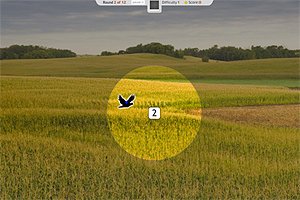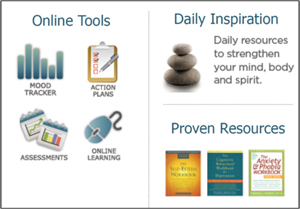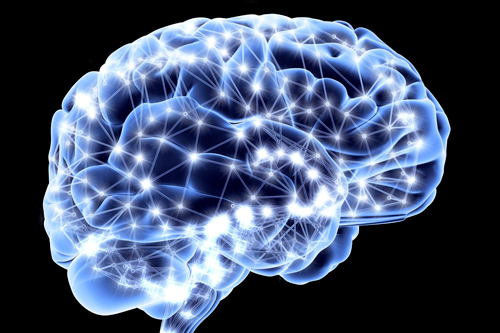 I was hunkered down in a digital workstation at an Arizona longevity clinic, testing a brain training game to figure out do brain training games really work? My mind was in overdrive as my fingers chased elusive flashes of light onscreen. I was playing a shrink’s rethink of the game Fruit Ninja, except that this was a test to determine my cognitive health —and my screen didn’t feature visually tasty exploding citrus.
I was hunkered down in a digital workstation at an Arizona longevity clinic, testing a brain training game to figure out do brain training games really work? My mind was in overdrive as my fingers chased elusive flashes of light onscreen. I was playing a shrink’s rethink of the game Fruit Ninja, except that this was a test to determine my cognitive health —and my screen didn’t feature visually tasty exploding citrus.
Slightly skeptical, I was testing and flexing my memory skills, hand-eye coordination, and brain fitness over time, versus gunning for the highest score among tweens who “slash” melons and pineapples ninja-style. As part of a $3,800, state-of-the-art, executive-health physical exam, I also sought to gain some reliable gauge of my brain’s “age.” At 46, I was hoping my results would place me at maybe 40 years old. And even if I didn’t initially test that young, could I get there with some serious brain training?
Maybe. But first I needed to get a firmer handle on the wide variety of brain tests and related fitness programs that are available today.
SharpBrains, an independent market research firm, announced recently that the brain health and assessment software market reached $1.3 billion in 2013. The industry will shoot to $6 billion by 2020, SharpBrains predicts, spurred by graying baby boomers, salt-and-peppering Gen X-ers, and skinny jeans Millennials.

“After releasing our first games, like Word to Word and Word Link, we discovered a huge market of women, age 35-plus,” said Howard Go, co-founder of Mochibits apps and brain teaser games. “We realized through their downloads and comments that you don’t have to get a ‘score’ to realize an accomplishment. The word associations spark connections for them—that aha moment—when you go: ‘Wow, I didn’t see that at first. It’s rigorous…and I didn’t see it.’ It’s pleasure that they are looking for—making the connection.”
Lumosity, a leader in the neuro-training field, is making even larger connections these days. It raised more than $70 million to develop brain games that are said to offer true cognitive and brain fitness benefits. As we age, we can build brain function due to “neuroplasticity,” or the ability to reprogram parts of our thinking. With more than 50 million users, Lumosity bills itself as “the Web’s most popular brain training program.” In one recent month, its users logged nearly 50,000 downloads a day and 17 million U.S. visitors to its website.
Perhaps more significant than dollars or downloads is 100 billion: the massive number of brain cells we’re looking to keep sharp, alive, and young.
Not so fast, say a cadre of neuroscientist-researchers who await further proof before signing on as industry endorsers. These researchers point repeatedly to limitations of a 2008 study on so-called fluid (higher) intelligence as the reasons for their lukewarm optimism.

The study, they feel, in part due to its design limitations, may have claimed more powerful results than actually were proved. “I am unaware of any convincing evidence to support the view that the commercially available brain training devices have general benefits in normally healthy adults,” said Adam Hampshire, Ph.D., a neuroscientist at the Centre for Brain and Mind, University of Western Ontario, Canada.
The cautious researchers aren’t saying that brain training and mind fitness games are ineffective or in any way harmful. Instead, they argue that the games may help to develop memory or task skills that are limited to those that revolve around the gaming experience—and that these memory gains are separate from marked improvement in fluid intelligence.
As more research unfolds, at least one new niche of the brain training industry remains focused and helpful to a more limited audience—those who experience depression or anxiety symptoms. In this area, there are both positive and tangible benefits to report.

At myStrength.com (“The Health Club for Your Mind”), for example, patients and former patients practice online therapeutic exercises and personal “motivations” that contain medically edited and peer-reviewed content. They also use instructional videos with daily training steps for anxiety relief, plus mood and outlook boosts. As Tom Barrett, Ph.D., a professor in the psychology department at the University of Denver has reported, countless patients have benefited from therapy of this type.
As for assessing my own brain’s agility, after minimal episodic training and before my doctor-prescribed dietary changes had time to take full effect, my brain score came back at 44. Not bad for a 46-year-old—but also, perhaps, a perfect candidate for the next wave of brain games.



